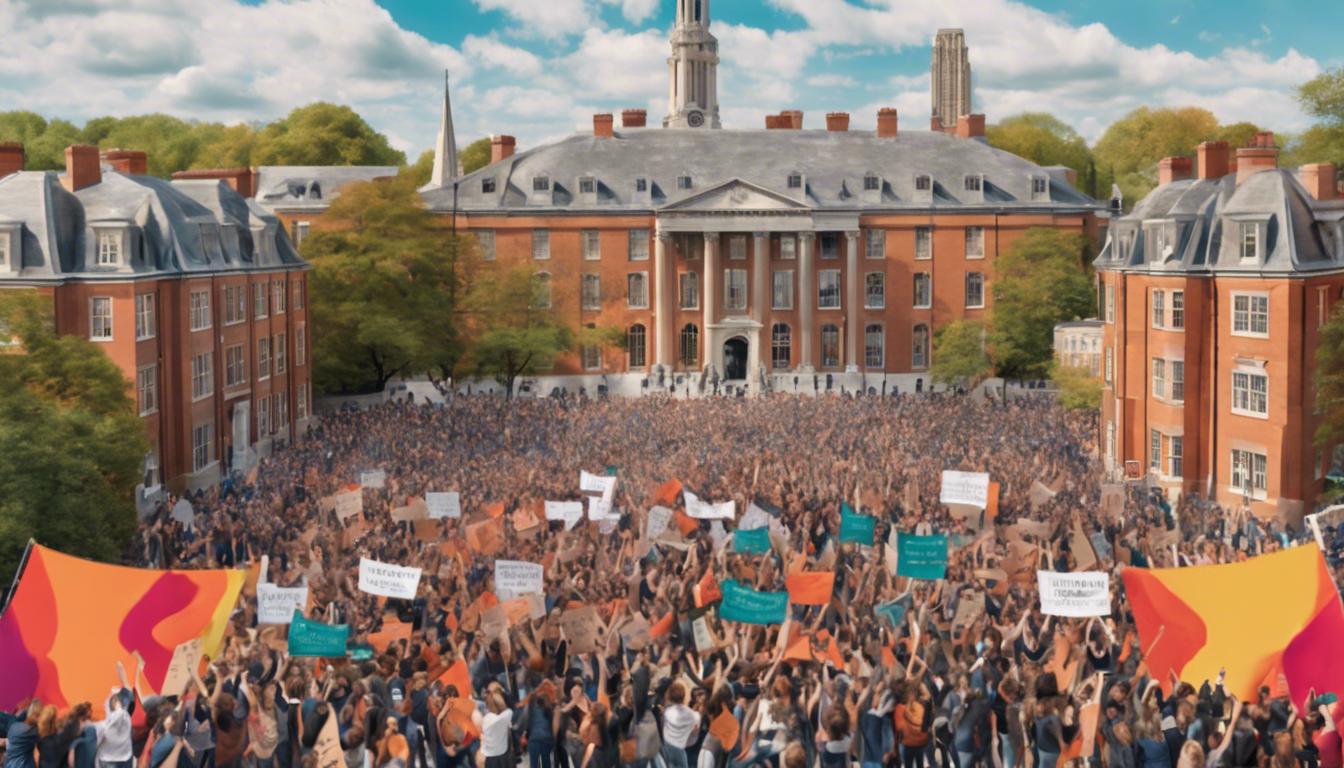Approximately 150 students have been arrested across Yale, NYU, and Columbia University amid protests demanding divestment from companies linked to Israel’s military actions.
Police have arrested approximately 150 pro-Palestinian demonstrators across Yale University and New York University (NYU), with Columbia University transitioning to remote learning due to similar protests. These arrests occurred amidst ongoing student-led demonstrations demanding that universities divest from companies connected to Israel, particularly those supplying military equipment.
At Yale, 47 students were detained, advocating for the university to cut ties with military-linked corporations, and now face potential disciplinary actions. The situation escalated at NYU where clashes with police involved the use of pepper spray to prevent a police bus carrying detainees from departing.
Following over 100 arrests, Columbia switched to hybrid learning modes, citing student safety during the unrest. The protests have sparked a broader movement across various U.S. campuses, including the University of California, Berkeley, MIT, and the University of Michigan, showing widespread support for a ceasefire in Gaza and divestment actions.
Isra Hirsi, the daughter of Congresswoman Ilhan Omar, was among those arrested and suspended at Columbia University. Her involvement highlights the growing solidarity from both faculty and students against perceived injustices linked to university investments.
The responses to these protests have been mixed. Robert Kraft, a significant donor, withdrew his financial support from Columbia citing safety concerns. Additionally, the response has seen political dimensions with both Republican and Democratic lawmakers calling for the resignation of Columbia’s president. Columbia University and NYU have emphasized balancing safety and free expression, reflecting the broader challenge faced by educational institutions during such conflicts.
Nationwide, the incidents have not only reinforced activism related to the Israel-Palestine conflict but have also led to increased measures against antisemitism, as reported by concerned student groups and faculty. The White House and various lawmakers have condemned the rise in hostile incidents, illustrating the complex interplay of student activism, campus policy, and national politics surrounding these events.













